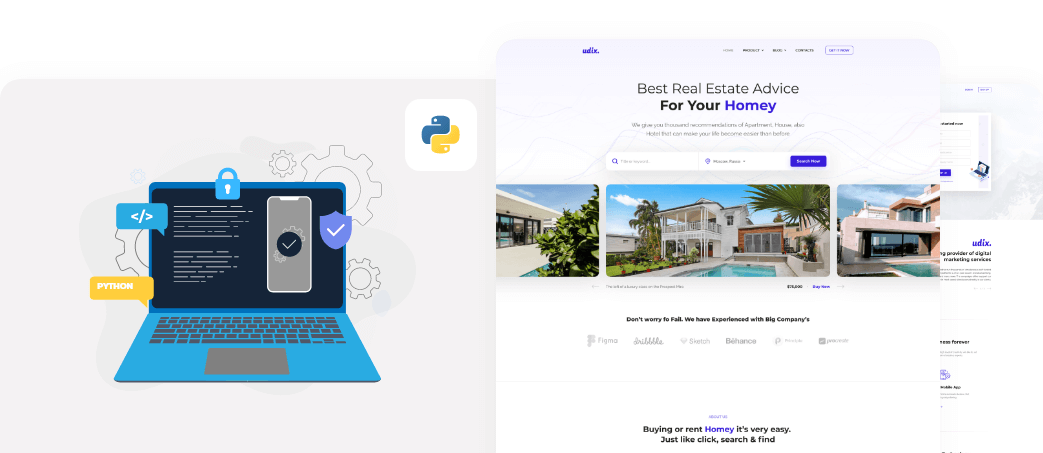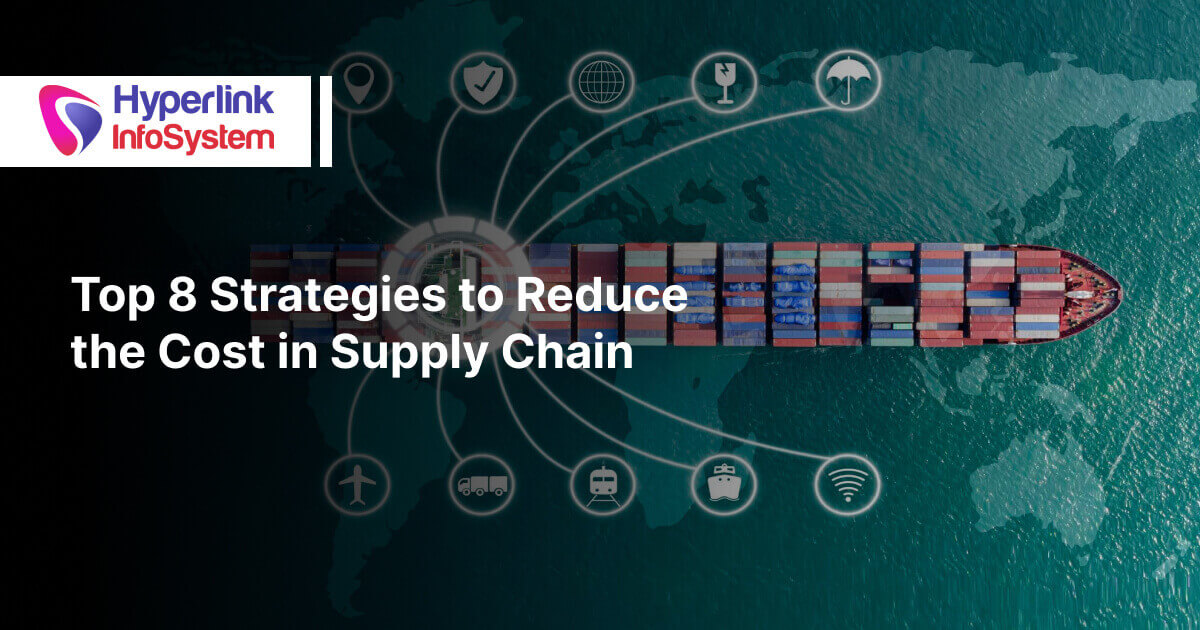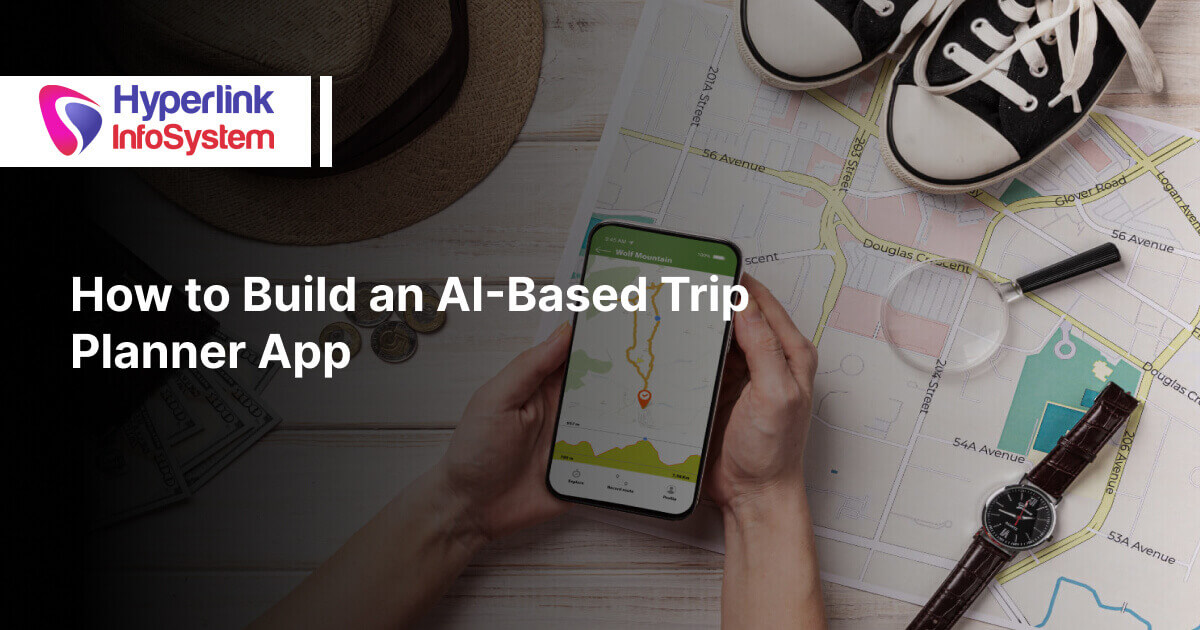Python Development Company in Canada
Canada's leading Python development company!

Python web development is not always the main choice for building server-side websites. This language is multipurpose, which means that it is usable in most programming fields.
Experts promote Python as the ideal language for machine learning and neural network creation. Additionally, Python is also the standard choice for performing large-scale data set analysis to find out market trends, average prices, and predict future patterns. However, Python for web development is also a solid choice, attracting people with its simple syntax, a variety of frameworks, and a strong overall ecosystem. Instagram, one of the dominant social networks, uses Python for its platform, receiving millions of visitors a day.
Developing Your Web Projects With Python Framework
Building a website with Python means producing code responsible for running on the server rather than in the browser. Server-side or backend creation of your website is crucial for storing user information.
The backend also manages the way information travels to and from the server. Additionally, Python for web development will be the one that controls user authentication. Building the server side is not a complicated task, but ensuring the stability and security of the procedures can be time-consuming. Therefore, frameworks are especially useful to cover all these aspects.
A Low Learning Curve
Python has one of the lowest learning curves compared to programming languages ??like C ++ or JavaScript. One of the main reasons to try to practice web development in Python is the straightforward, English-like syntax. In fact, Python is fair game for people who have never tried programming, but more advanced developers treat Python like kindergarten.
Common biases aside, Python is great for working on web applications with multiple colleagues. The code is usually simplistic, which means that your co-workers won't need to work hard to understand your input.
Python's easy syntax is also an advantage for building detailed and complicated systems. Developers will find it easier to recognize relationships between elements and indicate structures.
List of Top Python Development Frameworks
One of the most notable features of Python is its ecosystem. Specifically, the number of frameworks that are available. Since the use of web development in Python has increased significantly, there are many web-oriented modules designed to help people produce functional websites.
When it comes to frameworks, there is no best Python web framework that everyone needs to learn to make web development with Python possible. You can break away from the existing modules and build the server side individually. However, frameworks are very useful because they speed up the development process.
Another important aspect is that the most feature-rich framework may not be suitable for everyone. If you select the frameworks according to their popularity and user communities, you could waste time learning a module that does not even provide the features you need for your project.
In the realm of web development in Python, there are several dominant frameworks: Django, WebApp2, Pyramid, Flask, TurboGears, Bottle, and CherryPy.
Django
Building a website with Python is often done with the help of Django. It is a web-oriented framework that offers some of the main intricate program components: authentication (sign up, logout), admin panel, a structure for uploading files, template engine, and URL routing. In Django, all of these features are available for use immediately after configuring the framework. Without the module, you would have to write all these features manually.
Django is not the most flexible Python web framework, but its methods are safe and tested. It provides you with the basic components of the website and allows you to focus on the unique aspects of websites.
Flask
Flask is another supporter of web development in Python. All the components of this module are to be executed in the context of the server. Additionally, Flask is a micro-framework, which means that it shows little or no dependency on other libraries. Thanks to this, Flask is lighter than Django, but a downside is that Flask has a limited number of features.
Therefore, developers are faced with a dilemma: whether to preserve the lightweight look of Flask or to install additional plugins to extend the functionality of this framework. For example, you won't find form validation support in Flask, which means you'll have to write the code yourself or retrieve it via plugins.
Pyramid
Pyramid is the next most popular Python web framework. It provides more features than Flask but is nowhere near the full range of Django capabilities. However, Pyramid is one of the most flexible frameworks, as it doesn't force you to use a specific approach to complete a task. The module will provide you with authentication and URL routing support, but you need to connect to a database or storage by using external libraries.
TurboGears
TurboGears is a highly scalable framework for building both large and small-scale web projects. This module offers a variety of features, starting with identification and authentication, authorization, caching, plugin applications, and session management. TurboGears also follows the MVC model, which divides the application into three parts: model, view, and controller.
Bottle
Bottle is an extremely lightweight and flexible Python web development framework. It's best for small-scale projects that don't require unique features. Bottle is a WSGI compliant single code library, which means that all your code is in a ‘.py’ file. Although this may mean that this framework is easier for beginners to understand, more advanced developers can easily find it. It's great to experiment with as Bottle is very unoriginal (unlike other large-scale frameworks like Django).
Python web development is one of the main use cases for Python. It is applicable only for backend development, which means that it will connect to the database, and send or retrieve data from the server. Basically, Python will build the logic behind the procedures that occur under the hood. Hyperlink InfoSystem is a web development company based in Canada. We can help you with your Python web development projects.
Technologies We Work on
Process We Follow
1. Requirement Gathering
We analyze the requirements with the clients to understand the functionalities to combined into the app. This process allows us to form a development plan and transform the client's thoughts into an efficient and functional app.
2. UI/UX Design
Our developers use efficient UI trends to design apps that are not only pleasant to the eye but also intuitiveness and flexible. Our applications do not only complete the needs of our clients but also are simple and convenient to the end-users.
3. Prototype
We develop a preliminary visualization of what the mobile app would look like. This helps to generate an idea of the appearance and feel of the app, and we examine the users' reactions to the UI and UX designs.

4. Development
Our team of experts in Native, Hybrid, and Cross-Platform app development, using languages such as Swift, Kotlin, PhoneGap, Ionic, Xamarin, and more to produce high-quality mobile apps for the various operating systems.
5. Quality Assurance
We have a team of developers who carefully test every app to ensure that they provide an excellent user experience and meet the requirements of our clients. Apps developed by our development team are bug-free because they perform through a series of experiments before deployment.
6. Deployment
We follow the best practices when deploying our apps on different app stores, where they can be easily noticeable to considered users.
7. Support & Maintenance
All digital solutions need development. The deployment of an app is not the ultimate stage. Even Post-deployment, we work with our clients to offer maintenance and support.
Process We Follow
Latest Blogs
Explore the Latest Blogs on Trends and Technology.
 +1 309 791 4105
+1 309 791 4105

























































 +91 8000 161161
+91 8000 161161
